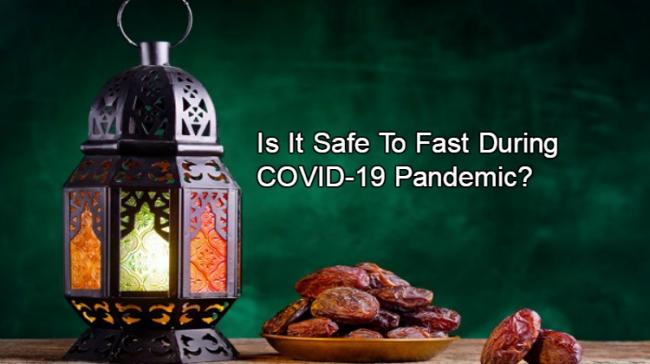Is Ramadan Fasting Safe During Coronavirus Pandemic?

The holy month of Islam, Ramadan which is in the midst of global pandemic this year will be quite different than usual.
Ramadan, which began on the evening of April 24 and on April 25 in some countries, will see a month-long period of fasting, worship and devotion to Allah. It commemorates the Quran being first revealed to the Prophet Muhammad.
Mosques, which are usually busiest during this month, are closed inorder to break the chain of coronavirus. As a result, this year Ramadan will feel very different for a lot of Muslims around the world.
As the deadly novel coronavirus is spreading like a wildfire across the world, the biggest question popping up in the mind of many muslims is about fasting during a viral pandemic.
Can fasting affect a person's chances of contracting the coronavirus?
Muslims who are fit enough can fast during Ramadan.People can skip the fasting if they notice any cold, flu or symptom of COVID-19. However, if you are fit and fast, then there is no chance of contracting to the disease.
In fact, fasting is believed to be beneficial to the body in a number of ways. Experts claim that fasting helps in boosting your immue system by reducing the amount of general inflammation that can occur in cells within the body.
Basically, when you fast, your body goes into an 'energy conserving mode' due to lack of food intake. In an effort to save energy, the body recycles many of its old or damaged immune cells, which later promotes the generation of new, healthier immune cells when the fasting period ends.
These newly produced cells are more active, quicker and more efficient at fighting any kind of infections, further improving the immunity.
All we need is a perfect and healthy immune system to avoid the virus attack at this juncture.
Though fasting boost your immunity, there are also evidences that, it releases the stress hormone cortisol, which can suppress some immune responses. And as prolonged periods of not eating or drinking can weaken the immune system, it is important to make sure you get enough calories during the hours you are permitted to eat (Seher) , including enough:
1. macronutrients - carbohydrates, proteins and fats
2. micronutrients, such as vitamin C and iron
IMPACT OF NO WATER INTAKE DURING FASTING:
While a study has shown that prolonged water fasting beyond 12 to 24 hours can have a slight detrimental effect on the immune system, putting you at a slightly increased risk of catching any kind of infection, it also showed that immunity returned to a better state soon after eating and drinking again.
CONCLUSION: As this is our first Ramadan during pandemic, it is impossible to know whether fasting may offer some level of protection against getting the illness itself. It's better to stick to the precautionary measures inlcuding social distancing, hand-washing, hygiene and self-isolation.
Also Read: Hyderabad Old City Wears Deserted Look On First Day Of Ramadan





